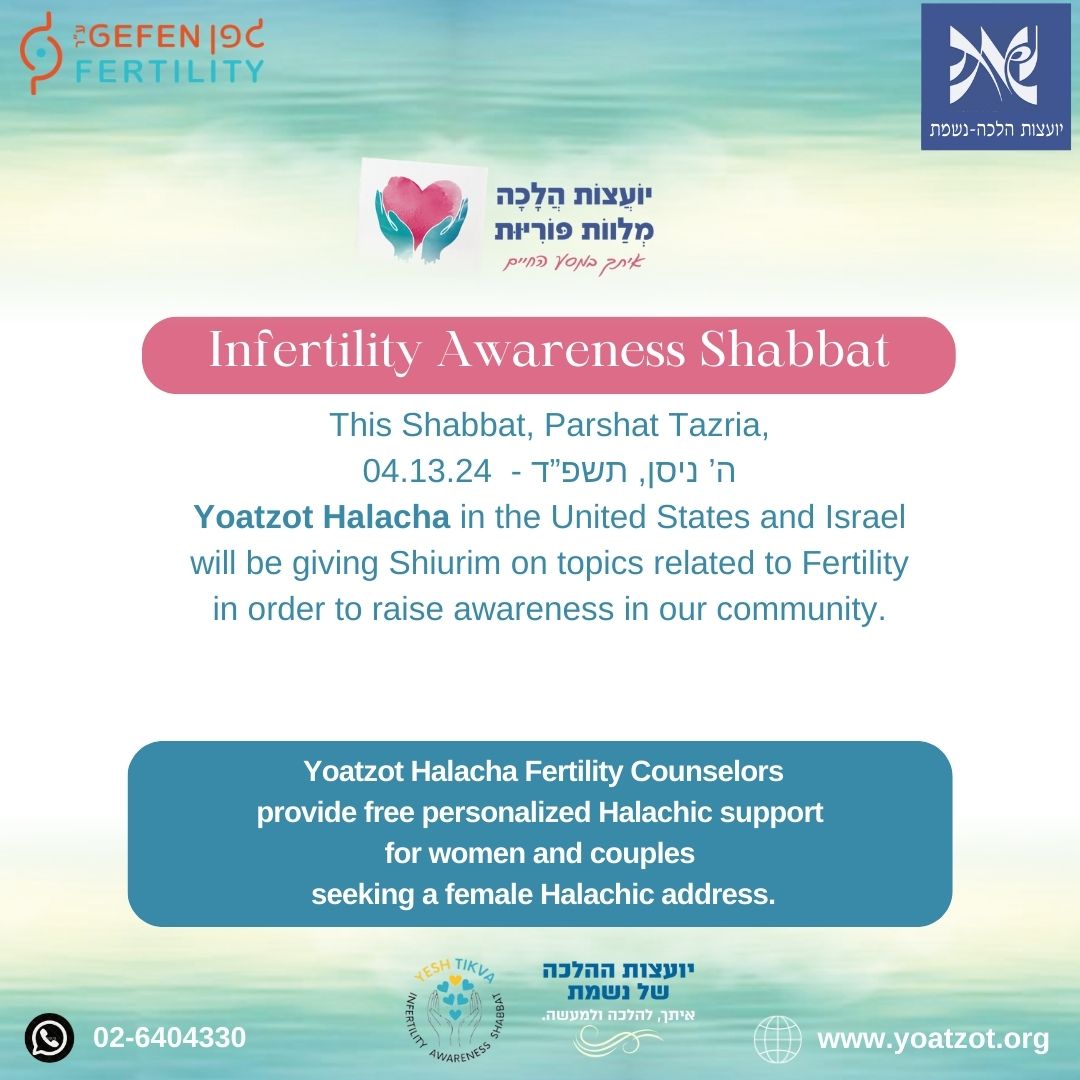Avoiding looking in shivah neki’im
6 July, 2015
 Question:
Question:Are you obligated to look at your underwear, panty liner, toilet paper, etc. during shiva nekiim? My bedikot have been clear. I have been avoiding looking at my panty liners because I had issues with spotting before. I have to wear panty liners because I have urinary issues. Prior to this birth any spotting I found and showed to a rabbi was ok and did not make me niddah, but I’m still nervous.
Answer:Mazal tov on the birth of your child!
A woman is supposed to look at her undergarments during the clean days. The undergarments are white specifically so that stains will show up clearly on them. However, stains found on a pantiliner may be treated leniently. In your case, with urinary issues, wearing pantiliners during the clean days is permissible, although it means stains will be treated leniently. For details, please see our site’s article on Stains.
There is no requirement to look at toilet paper, even during the clean days. We advise either not looking or deliberately waiting at least a few seconds (ideally, fifteen seconds) between urinating and wiping, at which point stains on toilet paper can be treated leniently. For more information on this, please see our site’s article “Toilet Paper.”
On a side note, often women suffer unnecessarily with urinary issues. Should the issue persist, please see your physician or a urogynecological physiotherapist for treatment.
Please write back with any further questions.
This response has been updated to reflect the rulings of our current Rabbinic Supervisor, Rav Kenneth Auman, regarding waiting before wiping.
This internet service does not preclude, override or replace the psak of any rabbinical authority. It is the responsibility of the questioner to inform us of any previous consultation or ruling. As even slight variation in circumstances may have Halachic consequences, views expressed concerning one case may not be applied to other, seemingly similar cases. All health and health-related information contained within Nishmat's Women's Health & Halacha Web site is intended to be general in nature and should not be used as a substitute for consulting with your health care professional. The advice is intended to offer a basis for individuals to discuss their medical condition with their health care provider but not individual advice. Although every effort is made to ensure that the material within Nishmat's Women's Health & Halacha Web site is accurate and timely, it is provided for the convenience of the Web site user but should not be considered official. Advice for actual medical practice should be obtained from a licensed health care professional.
For further questions or comments: 
The Nishmat Women's Health and Halacha Site is a public service of Nishmat, The Jeanie Schottenstein Center for Advanced Torah Study for Women. This project and others like it are made possible by contributions from people like you. If you have benefited from the service, and wish to enable us to help others, click here to donate.
Users of Internet filtering services: This site discusses sensitive subjects that some services filter without visual indication. A page that appears 100% complete might actually be missing critical Jewish-law or medical information. To ensure that you view the pages accurately, ask the filtering service to whitelist all pages under yoatzot.org.






 Question:
Question:







